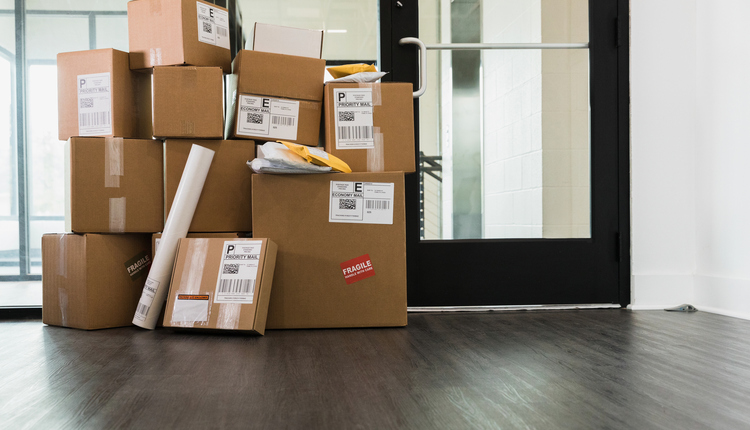Unless you're the most avid of sports fans, you have probably never heard of David Falk. Listed among the "100 Most Powerful People in Sports" for 12 straight years from 1990 to 2001 by The Sporting News, Falk is best known for his representation of Michael Jordan throughout Jordan's entire career. Jordan's fame and fortune are well-documented, but depending on who you ask, you're likely to get very different stories about his agent.
Players loved Falk because he could negotiate deals that owners and companies seeking endorsements said could not be done. Those owners and companies? Well, I'm sure they would portray him in a different light.
Sound familiar?
In the current climate of ever-increasing parcel costs, it is as important as ever to obtain savings for your company by any means necessary. Increases in accessorial charges, pricing and fuel surcharges (the top three biggest complaints about a company's primary carrier in the most recent PARCEL industry annual survey) have forced companies to get outside the box and proactively find solutions to combat rising costs.
Let's face it, you know your business and the carrier knows its business. The difference is that the carrier probably knows a lot more about your side than you know about theirs. Why? Because they have thousands of customers like you that depend on them for their shipping needs. That's an awful large data pool.
So when UPS and FedEx announced similar rate increases, as has become customary, which took effect in January, it was no surprise that the 4.9 percent net increase they announced failed to accurately portray the true effect that the changes might have on any given company's bottom line.
Remember the three biggest complaints — about accessorial, pricing and fuel increases?
Hidden amongst these increases are a plethora of minimums, tiers and additional surcharges that are all designed to make the carriers money.
It's working.
FedEx announced 76 percent Q2 profits in December, raking in more than $497 million. These are impressive results considering the drop in volume for its Express and Freight services. In January, UPS followed suit with record profits of its own, in Q4, announcing a six percent total revenue increase, up to $14.2 billion, and a 17 percent bump in adjusted operating profit, to more than $2 billion.
Of course, this is great news for shareholders. Pop "United Parcel Service" or "FedEx" into your Google News search bar and the returns will be inundated with stock market blog and finance news results pertaining to dividends, profit forecasts and, depending on when you search, 52-week highs.
But who's footing the bill?
Below is a breakdown of the net impact of each carrier's 2012 rate increases:
UPS
• The charge for additional handling will increase $0.50, to $8.50, up 6.25%.
• Commercial delivery area surcharges (DAS) will increase $0.15, to $2.00, up 8.1%.
• Extended residential DAS for UPS Ground and Air Services will increase $0.25, to $3.25, up 8.3%.
• The charge for Declared Value will increase $0.05, to $0.80, per $100 of the value declared and the minimum will increase $0.15, to $2.40, both up 6.7%.
• The charges for Delivery Confirmation Signature Required and Adult Signature Required will each increase $0.25, to $3.50 and $4.50, respectively, up 7.7% and 5.9%.
• Residential Surcharge for UPS Air Services will increase $0.25, to $3.00, up 9.1%, rates for Ground services jumped $0.10, to $2.55, a 4.1% hike.
• Hundredweight Residential surcharge will increase $2.00, to $26.00, up 8.3%.
• Large Package Surcharge will increase $5.00, to $55.00, up 10%.
FedEx
• The Additional Handling Surcharge will increase $0.50, to $8.50, up 6.25%.
• Commercial Delivery Area Surcharges (DAS) will increase $0.15, to $2.00, up 8.1%.
• Extended Residential DAS for Ground shipments will increase $0.25, to $3.25, up 8.3%. The surcharge will remain at $2.75 for FedEx Home Delivery shipments.
• The charge for Declared Value will increase $0.05, to $0.80, per $100 of the value declared and the minimum will increase $0.15, to $2.40, both up 6.7%.
• The charges for Delivery Confirmation Signature Required and Adult Signature Required will each increase $0.25, to $3.50 and $4.50, respectively, up 7.7% and 5.9%.
• Residential Surcharge and Ground shipments will increase $0.25, to $3.00, up 9.1%.
• Residential Delivery Charge for FedEx Ground and FedEx International Ground service to Canada will increase $0.25, to $3.00, up 9.1%. FedEx Home Delivery will increase $0.10, to $2.55, up 4.1%.
• Oversize charge will increase $5.00, to $55.00, up 10%.
If you increase your price while keeping operating costs constant, then you don't have to be John Maynard Keynes to understand that your profits will soon be on the rise. If you raise your prices enough, then even a drop in volume, as seen with certain carrier service offerings, won't be enough to dampen the returns.
And in an industry where competition is so thin, the consumer is at a steep disadvantage. So if MJ needed an agent in a 30-team market, he would have been more likely to need an army if the NBA were a two-team league.
There is, of course, one primary difference that some customers will point out when entertaining the thought of bringing in a third party — the delicacy of the carrier relationship.
Well, if you thought Chicago Bulls owner Jerry Reinsdorf was happy to see David Falk walk through his door, think again. But unlike the line drawn by UPS and FedEx, Reinsdorf wouldn't dare say, "I'm sorry Michael, but I refuse to do business with people who use a third party."
If you think about it, it's almost comical.
In today's world, third parties are everywhere you turn. Business as we know it — that is, fair trade — couldn't exist without them.
Rest assured that both FedEx and UPS use third parties to drive profits.
"Our improved performance was largely a result of effective yield management programs and strong demand for FedEx Home Delivery and FedEx SmartPost services," said Frederick W. Smith, FedEx Corp. chairman, president and chief executive officer, in the company's Q2 FY12 earnings release.
That's an interesting statement considering that the latter of those two services — FedEx SmartPost — relies on what? You guessed it • a third party. UPS employs SurePost to service its customers in the same capacity. The third party (the USPS in each scenario) doesn't answer your phone call, doesn't process your claim, but delivers your package! Isn't that what you're paying your carrier for?
Despite the glaring imbalance between what each carrier demands from its customers yet implements in its own business practice, the biggest hurdle we face when working with current and potential clients is the fear of damaging that relationship. Often, a company has been working with one or both, and its rep, for some time, and is fearful of messing up a good thing.
Any business man or woman worth his or her salt knows that this is a good practice.
But during the current economic crunch, does the cost outweigh this perceived consequence? At the end of the day, business is business, and you shouldn't be afraid that asking for an additional discount will ruin your relationship. Your carrier certainly isn't afraid to ask for • no, demand, an increase, is it? And I'm sure that if you asked Michael Jordan how he figured out how much to ask for in his contract negotiations, his answer would be pretty simple.
He hired an expert.
Doug Starcke is Managing Partner, First Flight Solutions, a Transportation Impact company. Contact him at 910.200.8836 or dstarcke@firstflightsolutions.com.
Players loved Falk because he could negotiate deals that owners and companies seeking endorsements said could not be done. Those owners and companies? Well, I'm sure they would portray him in a different light.
Sound familiar?
In the current climate of ever-increasing parcel costs, it is as important as ever to obtain savings for your company by any means necessary. Increases in accessorial charges, pricing and fuel surcharges (the top three biggest complaints about a company's primary carrier in the most recent PARCEL industry annual survey) have forced companies to get outside the box and proactively find solutions to combat rising costs.
Let's face it, you know your business and the carrier knows its business. The difference is that the carrier probably knows a lot more about your side than you know about theirs. Why? Because they have thousands of customers like you that depend on them for their shipping needs. That's an awful large data pool.
So when UPS and FedEx announced similar rate increases, as has become customary, which took effect in January, it was no surprise that the 4.9 percent net increase they announced failed to accurately portray the true effect that the changes might have on any given company's bottom line.
Remember the three biggest complaints — about accessorial, pricing and fuel increases?
Hidden amongst these increases are a plethora of minimums, tiers and additional surcharges that are all designed to make the carriers money.
It's working.
FedEx announced 76 percent Q2 profits in December, raking in more than $497 million. These are impressive results considering the drop in volume for its Express and Freight services. In January, UPS followed suit with record profits of its own, in Q4, announcing a six percent total revenue increase, up to $14.2 billion, and a 17 percent bump in adjusted operating profit, to more than $2 billion.
Of course, this is great news for shareholders. Pop "United Parcel Service" or "FedEx" into your Google News search bar and the returns will be inundated with stock market blog and finance news results pertaining to dividends, profit forecasts and, depending on when you search, 52-week highs.
But who's footing the bill?
Below is a breakdown of the net impact of each carrier's 2012 rate increases:
UPS
• The charge for additional handling will increase $0.50, to $8.50, up 6.25%.
• Commercial delivery area surcharges (DAS) will increase $0.15, to $2.00, up 8.1%.
• Extended residential DAS for UPS Ground and Air Services will increase $0.25, to $3.25, up 8.3%.
• The charge for Declared Value will increase $0.05, to $0.80, per $100 of the value declared and the minimum will increase $0.15, to $2.40, both up 6.7%.
• The charges for Delivery Confirmation Signature Required and Adult Signature Required will each increase $0.25, to $3.50 and $4.50, respectively, up 7.7% and 5.9%.
• Residential Surcharge for UPS Air Services will increase $0.25, to $3.00, up 9.1%, rates for Ground services jumped $0.10, to $2.55, a 4.1% hike.
• Hundredweight Residential surcharge will increase $2.00, to $26.00, up 8.3%.
• Large Package Surcharge will increase $5.00, to $55.00, up 10%.
FedEx
• The Additional Handling Surcharge will increase $0.50, to $8.50, up 6.25%.
• Commercial Delivery Area Surcharges (DAS) will increase $0.15, to $2.00, up 8.1%.
• Extended Residential DAS for Ground shipments will increase $0.25, to $3.25, up 8.3%. The surcharge will remain at $2.75 for FedEx Home Delivery shipments.
• The charge for Declared Value will increase $0.05, to $0.80, per $100 of the value declared and the minimum will increase $0.15, to $2.40, both up 6.7%.
• The charges for Delivery Confirmation Signature Required and Adult Signature Required will each increase $0.25, to $3.50 and $4.50, respectively, up 7.7% and 5.9%.
• Residential Surcharge and Ground shipments will increase $0.25, to $3.00, up 9.1%.
• Residential Delivery Charge for FedEx Ground and FedEx International Ground service to Canada will increase $0.25, to $3.00, up 9.1%. FedEx Home Delivery will increase $0.10, to $2.55, up 4.1%.
• Oversize charge will increase $5.00, to $55.00, up 10%.
If you increase your price while keeping operating costs constant, then you don't have to be John Maynard Keynes to understand that your profits will soon be on the rise. If you raise your prices enough, then even a drop in volume, as seen with certain carrier service offerings, won't be enough to dampen the returns.
And in an industry where competition is so thin, the consumer is at a steep disadvantage. So if MJ needed an agent in a 30-team market, he would have been more likely to need an army if the NBA were a two-team league.
There is, of course, one primary difference that some customers will point out when entertaining the thought of bringing in a third party — the delicacy of the carrier relationship.
Well, if you thought Chicago Bulls owner Jerry Reinsdorf was happy to see David Falk walk through his door, think again. But unlike the line drawn by UPS and FedEx, Reinsdorf wouldn't dare say, "I'm sorry Michael, but I refuse to do business with people who use a third party."
If you think about it, it's almost comical.
In today's world, third parties are everywhere you turn. Business as we know it — that is, fair trade — couldn't exist without them.
Rest assured that both FedEx and UPS use third parties to drive profits.
"Our improved performance was largely a result of effective yield management programs and strong demand for FedEx Home Delivery and FedEx SmartPost services," said Frederick W. Smith, FedEx Corp. chairman, president and chief executive officer, in the company's Q2 FY12 earnings release.
That's an interesting statement considering that the latter of those two services — FedEx SmartPost — relies on what? You guessed it • a third party. UPS employs SurePost to service its customers in the same capacity. The third party (the USPS in each scenario) doesn't answer your phone call, doesn't process your claim, but delivers your package! Isn't that what you're paying your carrier for?
Despite the glaring imbalance between what each carrier demands from its customers yet implements in its own business practice, the biggest hurdle we face when working with current and potential clients is the fear of damaging that relationship. Often, a company has been working with one or both, and its rep, for some time, and is fearful of messing up a good thing.
Any business man or woman worth his or her salt knows that this is a good practice.
But during the current economic crunch, does the cost outweigh this perceived consequence? At the end of the day, business is business, and you shouldn't be afraid that asking for an additional discount will ruin your relationship. Your carrier certainly isn't afraid to ask for • no, demand, an increase, is it? And I'm sure that if you asked Michael Jordan how he figured out how much to ask for in his contract negotiations, his answer would be pretty simple.
He hired an expert.
Doug Starcke is Managing Partner, First Flight Solutions, a Transportation Impact company. Contact him at 910.200.8836 or dstarcke@firstflightsolutions.com.





